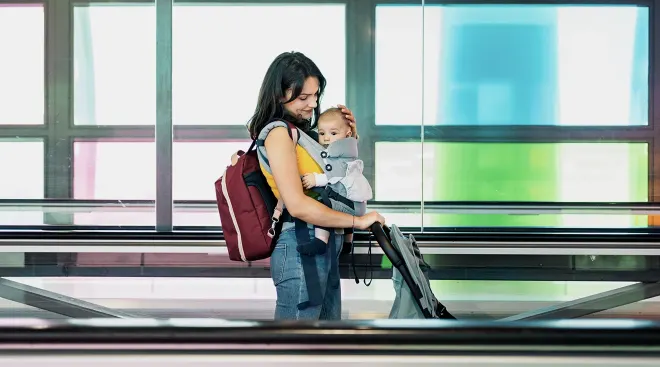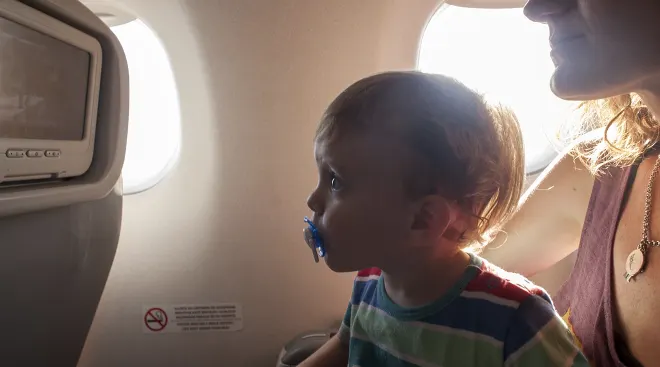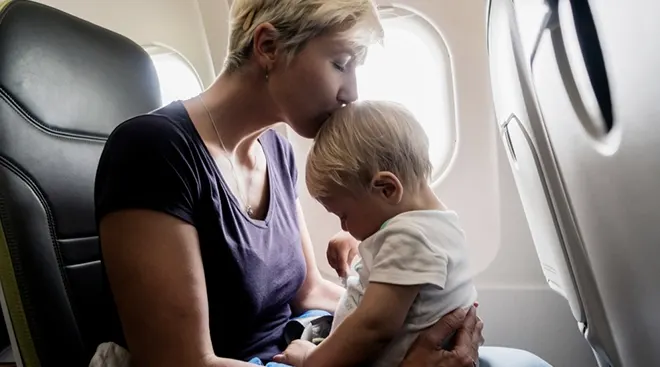Is It Safe for Baby to Be in High-altitude Areas?
Your baby might have some discomfort at high altitudes (the same as you would), but as long as she’s three months or older (her lungs won’t be mature enough prior to that), it’s not dangerous to take her on that family trip to the mountains. If you live in a high-altitude city, your baby will adapt to the pressure and lower oxygen level more quickly. Note: A high altitude is considered to be anything over 1,500 meters, or 4,921 feet.
Symptoms of altitude sickness:
According to the Mayo Clinic, there are three types of altitude-related illness:
Acute Mountain Sickness (AMS): Even though it has the word acute in the name, AMS is actually the mildest, most common type of altitude sickness. People may get this due to reduced air pressure and lower oxygen levels. Symptoms of AMS include difficulty sleeping, dizziness, fatigue, headache, loss of appetite, nausea or vomiting, rapid heart rate, and shortness of breath.
High-Altitude Pulmonary Edema (HAPE): HAPE is a serious condition in which people experience shortness of breath (even while resting), persistent coughing and exercise intolerance. Some may even cough up pink, frothy spit (which indicates that there’s fluid in the lungs).
High-Altitude Cerebral Edema (HACE): HACE, another serious condition, causes difficulty when walking, severe lethargy and a loss of focus.
How to treat altitude sickness
If baby is having trouble acclimating to the high altitudes, she might have a hard time catching her breath, difficulty sleeping, reduced appetite or upset stomach, and she might be irritable (sounds like a vacation from hell, doesn’t it?). She could start feeling the effects anytime within the first 36 hours after you hit a high altitude. Trust us, if baby’s not adapting to the altitude change well, she’ll let you know with those signs. You can help baby cope with high altitudes by keeping her hydrated (nurse her or give her formula more often), bringing layers of clothing to help baby acclimate to the temperature change, or taking her to a lower altitude. The faster you and baby travel to a high altitude, the more likely either of you could get altitude sickness. Plan your trip so that you have enough time to travel slowly and help baby (and you!) get used to the change.
In some severe cases, baby might need to use an oxygen tank to transition better. If you find that baby is struggling or working harder to breathe, has flared nostrils or has decreased activity, you should contact baby’s doctor right away.
Plus, more from The Bump:
Navigate forward to interact with the calendar and select a date. Press the question mark key to get the keyboard shortcuts for changing dates.




















































